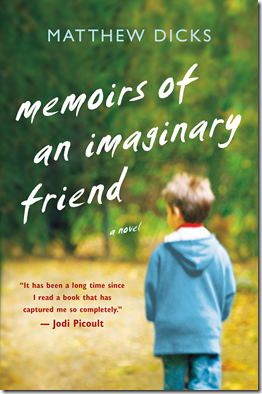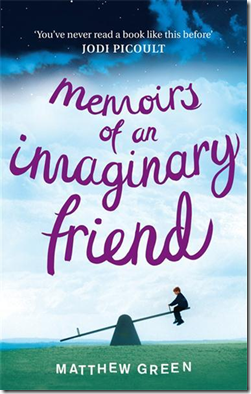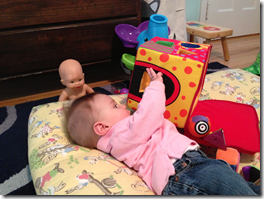Matthew Dicks's Blog, page 484
February 18, 2013
USA versus UK
The Millions recently ran a piece entitled Judging Books by Their Covers 2013: U.S. Vs. U.K. that compares book covers in the United States to their literary counterparts in the United Kingdom.
It’s an interesting look at the different interpretations of a novel. My reactions to the books featured in the Millions piece tend to be split (though I think the Hillary Mantel and Madeline Miller UK covers are far superior), as are my feelings for MEMOIRS OF AN IMAGINARY FRIEND, which actually published first in the UK.
My opinion regarding which one I prefer changes almost daily.
Three reasons I don’t ski. I also avoid cocaine and Angry Birds for similar reasons.
I don’t ski.
Years ago, a doctor told me to avoid skiing because of the cartilage tears in both of my knees. While I often cite this as the reason for not skiing, I have admittedly never been one to adhere to doctor’s instructions.
The real reason I don’t ski is because of something I was told back in 1992. I was working at a bank in Stoughton, Massachusetts as a customer service representative. I was helping a man settle an issue with his account, and while I was waiting for the necessary information, I asked him if he had plans for the weekend.
“Skiing,” he said. “Always skiing.”
Having grown up poor, I had never been skiing before, so I mentioned to him that I’d like to try skiing someday.
“Don’t,” he said. “Skiing is exactly like cocaine. It’s expensive, it’s addictive and you will get hurt.”
That sounded about right. So I decided there and then to never ski.
It’s the same reason I have never played Angry Birds or any other game on my iPhone. I know I would like the games a lot, and I know I would waste an enormous amount of time playing them.
Better to avoid them entirely.
As the man rose to leave my office, he turned, smiled and said, “It’s also all about the quality of the powder.”
Bethany Meyer’s recent 5 Reasons This Family Isn’t Skiing is a good list, but I like my former banking customer’s list better.
February 17, 2013
Based upon this year’s birthday gifts, I’m much more mature than I was two years ago.
My wife gave me tickets to American Idiot, the theatrical adaptation of Green Day’s rock opera of the same name, for my birthday.
Coincidentally, a friend who shares the same birthday as me (along with a laundry list of other bizarre coincidences) also received tickets to American Idiot.
Great minds think alike.
Though I recently posted that the gift I want most is the gift of knowledge, tickets to American Idiot are damn good, too. In terms of gifts, my preferred list includes (in no particular order):
1. Experiences
2. Knowledge
3. Time
4. Cash
With few exceptions, I have no interest in things. Other than a few large ticket items, I have plenty of stuff already.
American Idiot represents a unique experience, and considering I’ve written my own rock opera, it’s the perfect gift.
Ironically, someone at work attempted to solve my iPhone calendar sync issue on Friday, which is one of the items on my knowledge list, and two of my friends read the aforementioned post and have offered to assist in getting my podcast up and running.
I even received some cash.
This represents a dramatic shift in terms of the gifts that I have received for my birthday. Two years ago, Elysha planned a surprise party for me. The gifts from that party included
A pocket copy of the US Constitution
A sweatshirt that read Matt, The Man, the Myth, the Legend
A basketball
Gift cards to Dominos Pizza, McDonald’s and Wendy’s
Snow pants
Mille Bornes, a French card game that I played as a child
Underwear (from my in-laws)
In the words of one of my former students, “It’s like you’re not even a man yet, Mr. Dicks.”
Another said, “I can’t tell if you’re an adult nerd or just a big kid.”
The husband of one of my colleagues and the bearer of the McDonald’s gift card asked his wife, “Are we really giving McDonald’s gift cards as a birthday present?”
I like to think that the tickets to American Idiot represent a newfound maturity.
Or perhaps my wife’s attempt to mature her husband a bit.
Thanks. Ouch.
My friend (who is under 30 and lives in Brooklyn) referred to me as a “42-year old hipster” in his happy birthday greeting to me yesterday.
I don’t think I’ve ever felt so complimented and insulted by the same statement.
February 16, 2013
The search for the perfect handbag instead uncovers a small herd of vapid, mindless, disgusting sheep.
The Wall Street Journal published a story last week entitled The Nerve-Racking, Soul-Searching, Exhilarating Process of Shopping for a Handbag, that I sort of find unbelievable and tragic.
In fact, for a while I thought it was a piece written for The Onion and cleverly disguised as a Wall Street Journal article.
The piece is essentially a treatise on a condition that writer Rachel Dodes labels Handbag Decision Paralysis, “a type of commitment phobia in the accessories milieu.”
Dodes paints a picture of women spending inordinate amounts of time and energy searching for a handbag that’s price tag could feed a village in East Timor for a month.
I don’t understand it. Nor do I think anyone else should.
Dodes writes:
In a modern, mobile world, there’s also something deeper going on with women and their bags, according to Judith Clark, professor of fashion and museology at the London College of Fashion. “On one level, it’s this banal thing: How do I choose a handbag?” said Ms. Clark, who curated the permanent collection at the recently opened Simone Handbag Museum in Seoul. “But it’s also a very intimate decision, having to do with the privacy that goes along with the inside of a bag.” In picking a bag, we are in essence showing the world how we pay respect to the contents of our lives, and perhaps even ourselves.
I don’t care if Judith Clark is an accredited professor. This is insane.
First, who “pays respect” to the stuff they own? Am I to believe that a woman’s choice of handbag represents an outward demonstration of the degree to which she respects her iPhone or lip balm or Kindle?
A poor choice of handbag, therefore, reflects a flagrant disrespect for these items?
What does that even mean?
And am I also expected to believe that a woman’s choice of handbag reflects the amount of self respect that she possesses? Because if this is true, womankind is doomed.
If I were a woman, I would outraged by statements like these, and as the father of a little girl, I am terrified to think that my daughter’s level of self respect and self worth might someday be measurable by her choice of handbag.
Professor Judith Clark was right. This is “a banal thing.” But not on just one level, as she states. All levels.
Equally insane is Rebecca Sinn, the 32-year-old editor at Glamour magazine who Dodes reports has been “eyeing the neat, top-handled Yves Saint Laurent Muse II bag for more than three years but just can’t pull the trigger. She likened buying the bag, which costs about $1,500, to a ‘committing to adulthood,’ something that she’s not quite ready to do.”
It’s a bag, Rebecca. Yes, it costs twice as much as the iPad that it is designed to carry (which is also insane), but it is nothing more than leather and fabric stitched together in order to carry personal belongings. Likening it to a “commitment to adulthood” is a clear indication that Rebecca Sinn does not know what adulthood is.
Then there is Dode’s friend, Julie, who began emailing her pictures of the large Proenza Schouler PS1.
“We started a lively debate over whether the bag was still “It”—and if it was, whether this was a good thing or not. I had seen versions of it on the flash-sale website Gilt.com, which is a mixed blessing for bag enthusiasts. On one hand, it means you can get the bag for about 30% off. On the other, the discounting is a signal that the bag could be nearing the end of its “It” run. I’ve carried bags past their invisible expiration date; it’s a feeling akin to betting on the wrong horse at the Kentucky Derby.”
I can’t help but wonder (with near sincerity) if Dodes and her friend are still in high school.
A lively debate?
An “It” bag?
A handbag past its expiration date?
What the hell happened to seeing an item, liking an item, determining that the item matches your own sense of style and purchasing the item? What Dodes (and Julie) describe is a desire to find a bag that has enough popular people carrying to make it popular but not too many people carrying it to make it unpopular.
This is high school. Right? It’s the essence of high school.
It’s fairly judgmental for me to assume, but I cannot help but think that every woman involved in this piece, including Dodes, is an entitled, vapid, mindless, boring elitist who lacks an ounce of perspective or a modicum of self confidence.
Upon reflection, I’m sure that’s not entirely correct. Dodes and Sinn and Julie are probably lovely and interesting people with many unique qualities that they share with the world. I’m sure that their mothers love them and their friends think they are clever and adorable.
But when it comes to handbags (and possibly fashion in general), they are vapid, mindless, disgusting sheep.
Which came first? The chicken or the egg?
The actual answer at last!
February 15, 2013
Creepy doll babysitting my son
My daughter, Clara, agreed to play with her baby brother in his room while my wife was getting dressed.
After a few minutes, Clara changed her mind and wanted to watch something on television, so she came into the bedroom and told my wife that Tenna, one of her baby dolls, was going to watch Charlie instead.
This is what my wife found.
In answer to your inevitable questions:
1. My daughter invented the name Tenna. All of her dolls are named after children she knows or are invented names that sound Scandinavian in origin.
2. Yes, if you look closely, Tenna has a Band-Aid on her head. I don’t know why.
3. Yes, as cute as this scene might be, I also think it’s a little creepy.
Are the lessons learned by working your way through college worth the cost?
I didn’t exactly work my way through college in the way that this recent New York Times piece discusses, but it was close. Though I graduated from college with debt, it was less than a one year’s worth of tuition, and it was primarily the result of my need to student teach during the final semester of my college tenure.
Unfortunately, that final semester turned out to be quite expensive.
With the exception of that final semester, however, I worked my way through college, and I would argue that I learned more from that experience than if my parents had paid for my education.
While attending college, first at Manchester Community College for three years and then at Trinity College and Saint Joseph’s University for another three, I worked 45 hours a week managing a McDonald’s restaurant.
It was not easy to squeeze in that many hours into a full class load, but I managed. I worked on Monday, Wednesday and Friday from 4:30 AM until 1:00 PM before heading over to the college for afternoon and evening classes. I also worked from 4:30 AM until 2:00 PM on Saturday and Sunday, bringing my total number of hours each week to at least 45.
I also tutored in the Trinity College Writing Center for 10 hours a week, mostly on Tuesday and Thursday but also during some evenings as well, especially near the end of the semester when final papers were due.
In 1997, just as I was beginning my first year at Trinity, I also launched my DJ company and began performing at weddings throughout Connecticut. During my final two years of college, I was booked for 23 and 45 weddings respectively.
All of this was necessary in order to pay my bills and defray the cost of school. I paid for my three years of community college without any financial assistance, but my academic achievement and participation in student government resulted in a two-thirds scholarship from Trinity College (and by extension, Saint Joseph’s University).
I continued to work in order to pay for the remaining tuition, in addition to books, college fees and living expenses (I owned a home off-campus). I attended both schools simultaneously and ultimately earned a Bachelor’s in English and a teaching certificate in elementary education.
It was only during my final semester of college, which was comprised entirely of student teaching, that I was forced to take on a student loan. While that loan was considerable, it was a tiny fraction of my total education cost.
The six years that I attended college while managing a McDonald’s restaurant and running my business were some of the toughest years of my life, but I came away from that experience with a work ethic, an understanding of the important of efficiency and a level of self confidence that I would not possess had my parents put me through school. In fact, for all the classroom learning that I achieved in that time, I believe that I learned the most from having to pay my own way and support myself.
Whenever I hear a friend complain about the stress of their job or the difficulty of the work, I think back on those six years of college and smile.
I managed a fast food restaurant to profitability, launched a small business, and graduated in the top 5% of my college class. It was not because I am smart or or gifted or lucky. I worked incredibly hard.
Nothing since then has ever been more difficult.
I am not as laid back as some people believe. I simply know how much harder life can be.
Knowing all this, I can’t help but wonder:
What should I do when my children are ready to attend college?
If I am able, should I send them off to school without any concern about tuition costs? Or should I require them to work as I did, in order to learn the same lessons as me?
One of the cruelest things ever said to me was spoken by my best friend as he was graduating college and I was preparing to move into my car. He said, “It’s a shame you didn’t go to college right out of high school and do things the traditional way. You would’ve loved taking classes and living on campus. You were made for that stuff. You would’ve been a great college student.”
He didn’t say it to hurt me, but it still hurts to this day.
While I have great appreciation for my path to my college degrees, I never had the opportunity to attend college with people my own age and live on campus. College began humbly for me when I was 24 years old with an evening class called (unbelievable if you know my history) On Death and Dying. At that point I owned a home and was on my way to being married.
Living in the dorms was not a possibility.
How might my life be different had I experienced a more traditional four years of college like almost every one of my friends and colleagues?
Is the lesson learned by working your way through college worth the cost?
I’m still not sure.
February 14, 2013
Lessons learned from my McDonald’s career
My career at McDonald’s was a long one with many twists and turns.
I began working for McDonald’s when I was 16 years old after a friend learned that they were paying ten cents over minimum wage ($4.65). We interviewed at the store in Milford, MA and were hired on the spot.
Remarkably, I never asked my parents if I could get a job and never informed them that I was applying for the position.
When I was 17 years old and still in high school, I was promoted to manager. I continued working as a manager, working in company-owned stores in Milford, Norwood, Brockton, Hanson, and Bourne, until I was fired at the age of 22 when a deposit went missing and the police arrested me despite the company’s assurances that I was not responsible for the loss.
“We don’t believe that you took the money, but the police do, so we have no choice but to terminate our relationship with you.”
Three months later I was hired by the owner of a franchise in a second Brockton location to manage his store while awaiting trial. I would work in that store for almost two years as my second full time job while attempting to pay mounting legal fees for my upcoming court case.
It was during this time that I was robbed at gunpoint while closing the store.
When I moved to Connecticut at the age of 25, I left McDonald’s for a year before returning to the company for its flexible schedule in order to put myself through college. I managed a store in Hartford, CT for five years while I earned degrees from Manchester Community College, Trinity College and Saint Joseph’s University. I left the company for good when I was hired to teach elementary school upon graduation.
In all, I worked for McDonald’s for about twelve years of my life, almost all that time as a manager. I worked an enormously diverse group of people in those dozen years, including some of the most impressive people who I have ever met in my life.
I also learned many life lessons while working for McDonald’s, and I suspect that much of the success I enjoy today was in part the result of my time with the company.
These lessons include:
Develop systematized routines that eliminate needless steps in order to maximize efficiency. Much of my life is predicated on this belief and the systems that I have constructed for myself.
Clean as you go. Never allow mess or disorganization to accumulate.
Treating everyone on a team as an equal, regardless of title or age, is guaranteed to increase productivity and morale.
Making a meaningful personal connection with every member of a team will result in an army of loyal allies.
Personal pride can be derived from almost any task. Challenge yourself to be the best at everything you do, regardless of its importance.
Your success is almost always predicated on the success of others.
Never underestimate the value of a person in desperate need of a job, regardless of their lack of skill level or ability to speak English.
Always be grateful to have a job.
Making people laugh is supposed to be hard work.
It’s impossible to describe the joy I feel when watching my daughter make my son burst into laughter.
I just hope that she realizes that not every audience will be as generous as her baby brother.









